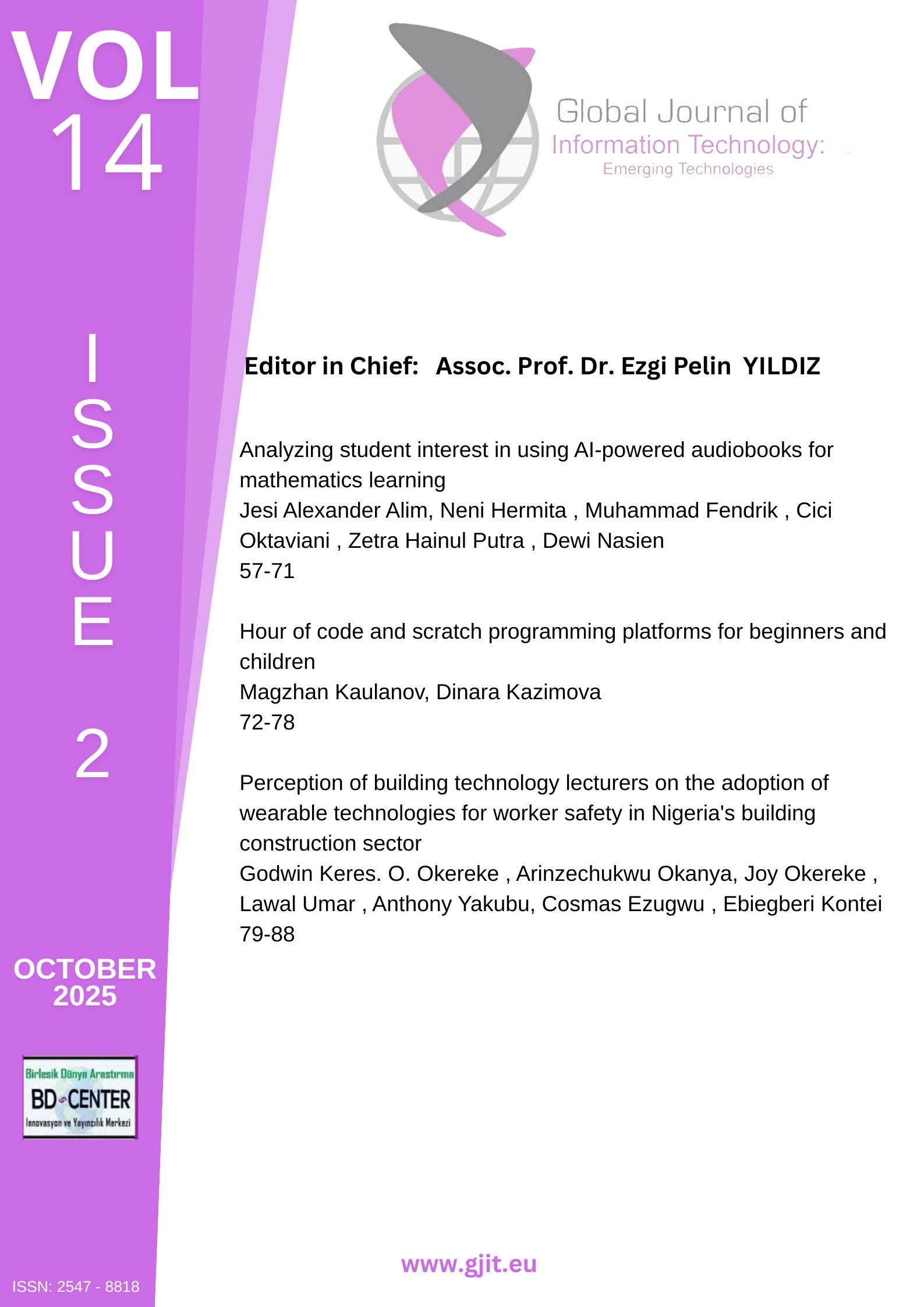Analyzing student interest in using AI-powered audiobooks for mathematics learning
Main Article Content
Abstract
Artificial intelligence is currently indicated as the fourth industrialization in education. Furthermore, learning about AI has become part of the elementary school curriculum in all countries. Audible books (audiobooks) are a valuable AI resource that can enhance students' interest in reading. Therefore, this study aims to analyze students' interest in using AI-based audible books for mathematics learning. Data were collected using a quantitative approach and statistical analysis. A total of 75 people consisting of 3rd, 4th, and 5th-grade Elementary students were selected as respondents. The results indicate that students show a strong interest in using audiobooks for mathematics learning. This interest is reflected in high levels of enthusiasm, enjoyment in reading, and a positive attitude toward using audiobooks, with most students expressing happiness, enjoyment, and a keen interest in this approach.
Keywords: Artificial intelligence; audiobooks; audible books; learning; mathematics
Downloads
Article Details

This work is licensed under a Creative Commons Attribution-NonCommercial-NoDerivatives 4.0 International License.
Authors who publish with this journal agree to the following terms:- Authors retain copyright and grant the journal right of first publication with the work simultaneously licensed under a Creative Commons Attribution License that allows others to share the work with an acknowledgement of the work's authorship and initial publication in this journal.
- Authors are able to enter into separate, additional contractual arrangements for the non-exclusive distribution of the journal's published version of the work (e.g., post it to an institutional repository or publish it in a book), with an acknowledgement of its initial publication in this journal.
- Authors are permitted and encouraged to post their work online (e.g., in institutional repositories or on their website) prior to and during the submission process, as it can lead to productive exchanges, as well as earlier and greater citation of published work (See The Effect of Open Access).
